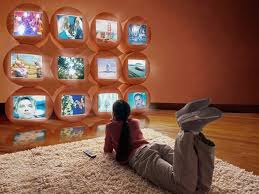Last month the Northwestern University in the USA published a national survey entitled Parenting in the Age of Digital Technology. The report is available for free download through the Parenting CC Portal , but here I would like to take a quick look at some of the findings and questions raised and see if we can provoke some debate.
The study explores how parents are incorporating new digital technologies (iPads, smartphones) as well as older media platforms (TV, video games, and computers) into their family lives and parenting practices, and it gives an idea of how parents use and view this technology.
We should point out that this is a US based survey.
The 10 key finding could be seen as the following:
1 While new media technologies have become widespread, a majority of parents do not think they have made parenting any easier.
2 Parents use media and technology as a tool for managing daily life, but books, toys, and other activities are used more often.
3 Parents still turn to family and friends for parenting advice far more often than to new media sources like websites, blogs, and social networks.
4 Parents do not report having many family conflicts or concerns about their children’s media use.
5 There is still a big gap between higher- and lower- income families in terms of access to new mobile devices.
6 Parents are less likely to turn to media or technology as an educational tool for their children than to other activities.
7 Parents assess video games more negatively than television, computers, and mobile devices.
8 For each type of technology included in the survey, a majority of parents believe these devices have a negative impact on children’s physical activity, the most substantial negative outcome attributed to technology in this study.
9 Many parents report using media technology with their children, but this “joint media engagement” drops off markedly for children who are six or older.
10 Parents are creating vastly different types of media environments for their children to grow up in, and, not surprisingly, the choices they make are strongly related to their own media use.
Some other interesting points arise, such as that 40% of families are described as media heavy and spend more than 11 hours a day in front of the screen. Half of all families surveyed have 3 TV’s or more in the house. 40% of 6 to 8 year olds have a TV in their bedroom. 70% of parents state that having mobile devices has not made parenting easier with 40% stating that they have a negative social skills effect upon the children.
The conclusions are in some ways surprising though as the authors demonstrate evidence that parents are still more likely to resort to traditional means of entertainment as rewards and punishment, and they are convinced enough about the educational possibilities offered by so called new media to not worry too much about their negative effects.
An interesting read if you have half an hour, but comments and debate about the summary above would also be educational.
